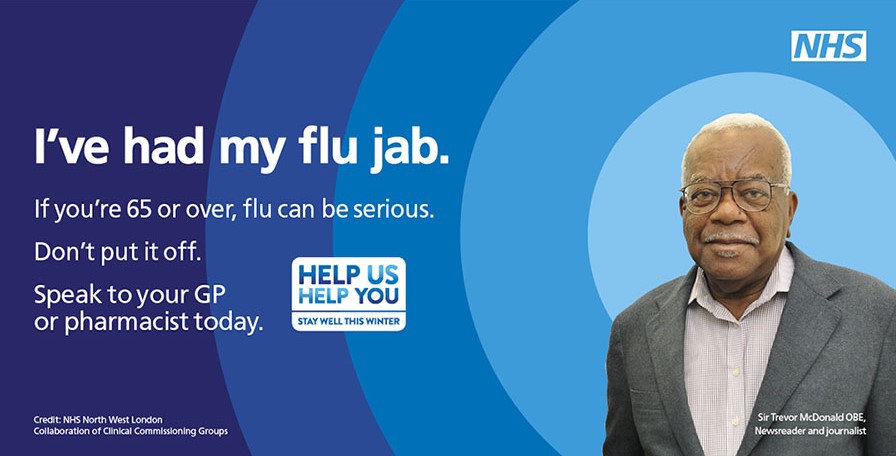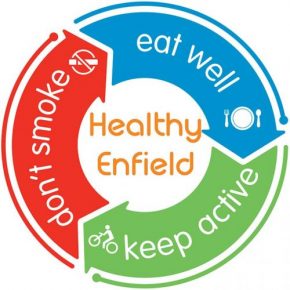Vaccines in pregnancy
Flu vaccine
There is good evidence that pregnant women have a higher chance of developing complications if they get flu, particularly in the later stages of pregnancy. One of the most common complications of flu is bronchitis, a chest infection that can become serious and develop into pneumonia. The flu jab will protect both you and your baby. The flu vaccine is normally available from September until around January or February each year. It is free for pregnant women.
If you’re eligible for the vaccine, try to have it as soon as possible so that you’ll be protected by the time the flu viruses are circulating in the winter. Don’t worry if you find that you’re pregnant later on in the flu season, though, you can have the vaccine then if you haven’t already had it. Contact your midwife or GP to find out where you can get the flu vaccine.
The NHS has more on the flu vaccination for women.
COVID-19 vaccine
If you're pregnant, it's important to get vaccinated to protect you and your baby. The antibodies your body produces in response to the vaccine can also give your baby protection against COVID-19.
Evidence shows that most pregnant women with COVID-19 who need hospital treatment or intensive care in the UK have not been vaccinated. If you're pregnant and have not had your first 2 doses and booster dose yet, it's important to get your vaccinations as soon as possible.
For more information, visit NHS.
Whooping cough vaccine
All women who are 28 weeks pregnant (ideally between 28 and 32 weeks pregnant) need the whooping cough (pertussis) vaccine. Getting vaccinated while you’re pregnant is highly effective at protecting your baby from developing whooping cough in the first few weeks of their life.
Talk to your midwife or GP and make an appointment to get vaccinated.
The NHS has more on the whooping cough for pregnant women.
Flu vaccination
 The flu season is from September to January. Influenza is a potentially-life threatening illness and not just a 'bad cold'. Flu kills an average of 8,000 people every year, and can be particularly serious in older adults, very young children, and people with underlying health conditions. Ensuring as many people as possible get the flu vaccine is important not only because it protects individuals, but because it also protects others.
The flu season is from September to January. Influenza is a potentially-life threatening illness and not just a 'bad cold'. Flu kills an average of 8,000 people every year, and can be particularly serious in older adults, very young children, and people with underlying health conditions. Ensuring as many people as possible get the flu vaccine is important not only because it protects individuals, but because it also protects others.
The flu season is from September to January. Influenza is a potentially-life threatening illness and not just a 'bad cold'. Flu kills an average of 8,000 people every year, and can be particularly serious in older adults, very young children, and people with underlying health conditions. Ensuring as many people as possible get the flu vaccine is important not only because it protects individuals, but because it also protects others.
Who should have the flu vaccine?
The injected flu vaccine is offered free of charge on the NHS to people who are at risk. This is to help protect them against catching flu and developing serious complications. The NHS has more details on who should have the flu vaccine:
- Adults 65 and over
- Pregnant women
- Children aged 2 and 3
- Children in primary school
- People with certain medical conditions (including children in at-risk groups from 6 months of age). See which Long term conditions are eligible
- Frontline health or social care workers
More information
For more information, visit NHS - Flu vaccine.
COVID-19 vaccination
The COVID-19 vaccines are the best way to protect yourself and others. Research has shown the vaccines help:
- reduce your risk of getting seriously ill or dying from COVID-19
- reduce your risk of catching and spreading COVID-19
- protect against different strains (variants) of COVID-19
1st and 2nd dose
If you have not received any COVID-19 vaccinations yet, you can still get vaccinated!
Everyone aged 5 (on or before 31 August 2022) and over can get a 1st and 2nd dose of the COVID-19 vaccine.
You can get a 1st and 2nd dose of the COVID-19 vaccine by:
- booking your first 2 doses online
- going to a walk-in COVID-19 vaccination site
Booster doses
Like some other vaccines, levels of protection may decline over time. Booster doses help boost your antibodies and give you good protection from becoming seriously ill or needing to go to hospital if you catch COVID-19.
You may be offered a seasonal booster if you:
- are aged 75 or over (you need to have turned 75 on or before 30 June 2023)
- live in a care home for older adults
- are aged 5 or over and have a weakened immune system
If you're eligible, you can get a seasonal booster dose of the COVID-19 vaccine by:
- booking your seasonal booster online
- going to a walk-in COVID-19 vaccination site
More information
Vaccines for older adults
In addition to the flu and COVID vaccine, adults over 65 are eligible for addition vaccinations to protect themselves from serious illness.
Pneumococcal vaccine
The Pneumococcal (PPV) vaccine is offered by the NHS to help protect against pneumococcal infections.
Pneumococcal bacteria cause pneumococcal infection. They can cause serious illnesses like pneumonia and bacterial meningitis. They can also cause other conditions like severe ear infections.
Some adults carry pneumococcal bacteria in the back of their nose and throat. They can pass bacteria on by coughing, sneezing, and close contact.
Who is eligible for a vaccine:
- People aged 65 and over
- People with a long-term health condition
If you are in one of these ‘at risk’ groups, contact your GP to arrange a vaccination.
The NHS has more on the pneumococcal vaccine.
Shingles vaccine
From September 1 2015, the shingles vaccine has been offered routinely to people aged 70 and, as a catch up, to those aged 78. This vaccine is available for free on the NHS. The vaccine is not available on the NHS if you are aged over 80.
Shingles is caused by a virus called varicella zoster, the same virus that causes chickenpox. When you recover from chickenpox most of this virus is destroyed, but some survives and lies inactive in your body’s nervous system.
The virus can then become active again later in life, when your immune system has been weakened by age, stress, illness or certain treatments that can reduce your immunity. The shingles vaccine helps to protect you by boosting your immunity.
The NHS has more on the shingles vaccine.
